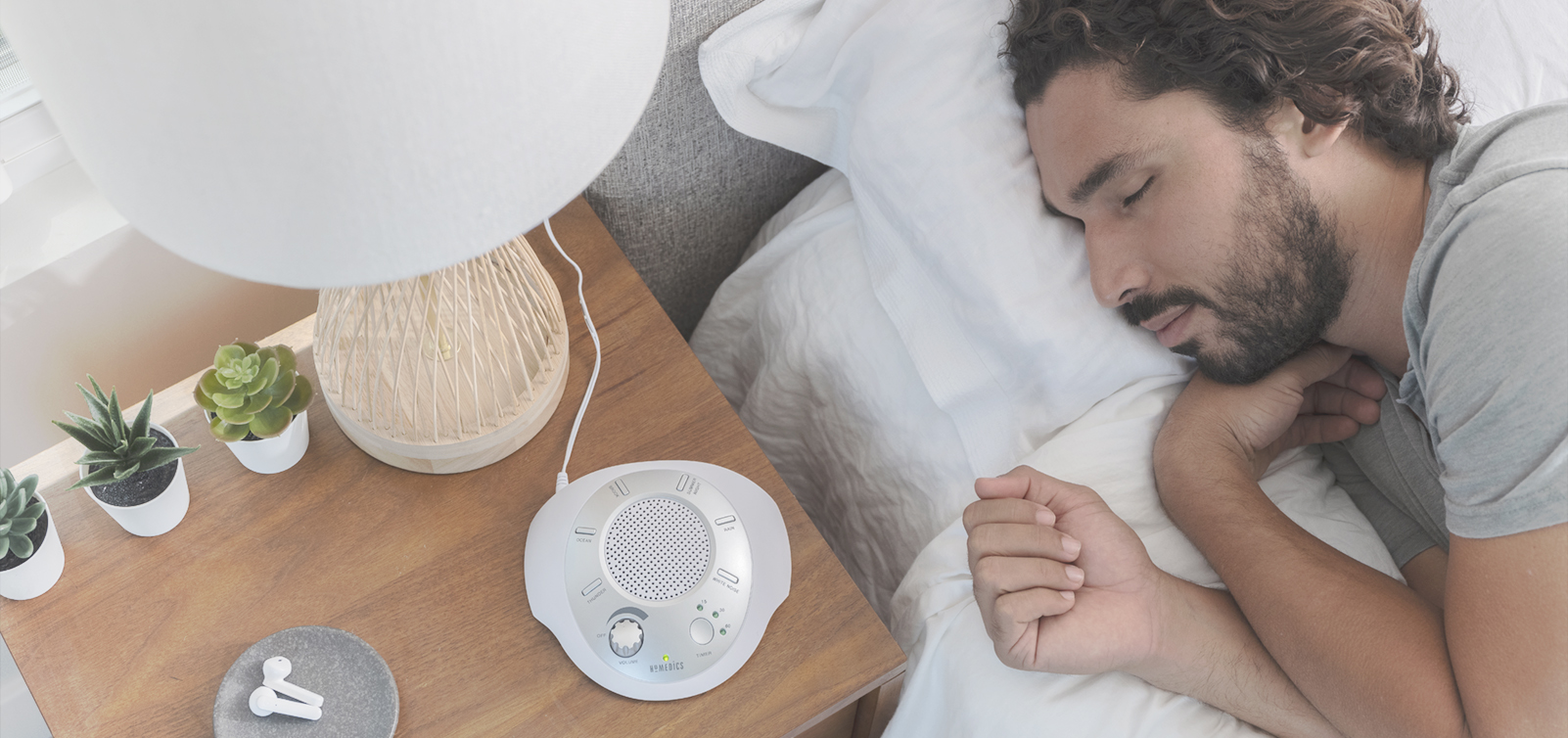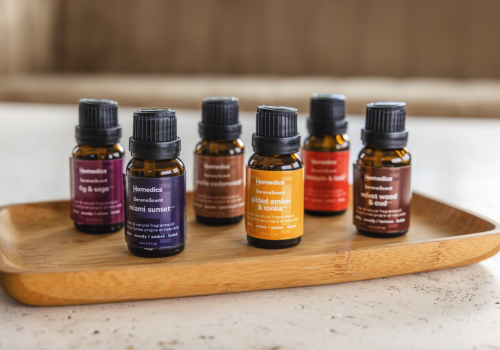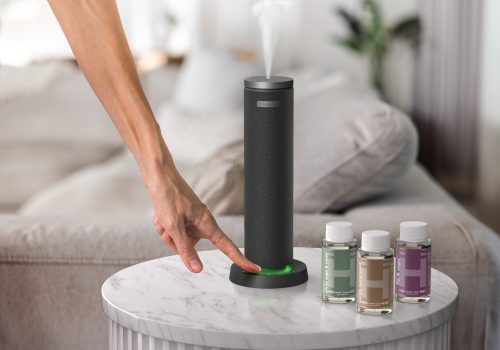How to Sleep Better for a Good Night’s Rest
So much of a healthy lifestyle depends on getting enough sleep. But even if you go to bed at a decent time, it can sometimes be hard to get a good night’s rest.
Between loud environmental noises, uncomfortable temperatures, and your racing mind, you might feel like you just don’t know how to get a good night’s sleep.
But there are steps you can take to learn how to sleep better and give your body the rest it deserves.
Let’s explore how to get better sleep so that you wake up feeling refreshed and ready to meet every new day.
Effects of Sleep on Your Health
The National Institutes of Health (NIH) estimates that 50 to 70 million Americans experience ongoing sleep disorders. In addition, as many as 19 percent of U.S. adults don’t get the recommended amount of sleep.
Sleep (and the lack of sleep) affects many parts of people’s health. Sleep deprivation or a lack of uninterrupted sleep has negative effects on mental health.
More important than simply lying in bed for eight hours per night, though, is getting enough quality sleep.
Uninterrupted sleep is important because it allows your body and your brain to go through complete sleep cycles. Interruptions disrupt these cycles and can prevent you from entering the deepest sleep phases.
Trouble sleeping can cause numerous negative effects, including increased stress levels and difficulty focusing. Lack of sleep can throw off your body’s circadian rhythms, which depend on a relatively regular 24-hour cycle of sleeping and waking.
How to Get Better Sleep at Night
If you find yourself feeling sleepy during the day or tossing and turning all night, try following these tips on how to sleep better.
Prioritize Sleep Hygiene
Sleep hygiene refers to the good habits you can develop to help yourself fall asleep and stay asleep throughout the night.
It’s an umbrella term that includes many of the tips and sleeping habits on this list. The combination of a good bedtime routine and other aspects of healthy living—such as diet and exercise—contribute to good sleep hygiene.
Strive to prioritize your sleep hygiene as you do your body hygiene, because it’s also an important part of a healthy and energized lifestyle.
Sleep Schedule and Routine
One of the most important aspects of good sleep hygiene is a solid sleep schedule. Your body’s circadian rhythm is responsible for the schedule that dictates when you’re awake and alert and when you’re sleepy and unfocused. It’s called a rhythm because it operates on a fairly regular 24-hour cycle.
Irregular bedtimes and wake-up times can confuse your circadian rhythm, potentially causing a variety of side effects. In addition to feeling tired at the wrong times, research has found that fluctuating sleep schedules might also result in higher levels of stress and metabolic disruptions.
One way to promote a regular sleep schedule is to develop a wind-down routine. Set up your routine to use as many of your five senses as possible to help make the routine stick. Dim the lights, diffuse soothing essential oils, and play white noise to start your bedtime routine. Put on your most comfortable set of pajamas and consider how you can make your bedroom as comfortable as possible.
Make Your Bedroom Comfortable
Your sleeping environment is a key part of ensuring that you can get a good night’s sleep. You want to feel absolutely comfortable in your bedroom so that being in the room helps promote relaxation and calmness.
There is scientific evidence that can help you decide on some of the qualities of your sleeping space. For example, research shows that a lower color temperature of the lighting promotes lower activity in the central nervous system and, therefore, may help encourage relaxation.
But other aspects of your sleeping space are almost entirely based on personal preference. In the end, it’s up to you to determine what conditions make you feel the most comfortable and ready to sleep.
There are a couple aspects of your bedroom to prioritize:
Sound: Consider a White Noise Machine
Eliminating distracting noises is important for all but the heaviest sleepers. Unfortunately, a lot of the noises that might keep you awake at night are out of your control. You can’t stop that dog from barking, quiet the noisy neighbors, or ask the bar across the street to turn down the music.
It’s up to you to limit noises as much as possible on your end. Using sound-dampening blankets can help mute some outside noises. If you’re particularly sensitive to environmental noise, you may want to try wearing earplugs.
Not everyone wants to sleep in silence, though. For those who like a bit of background noise but need to drown out the annoying road noise and other sounds, there are sound machines. White noise machines produce static frequencies that help cover up other sounds within the same band of frequencies. Using a sound machine helps prevent your brain from noticing outside noises so you avoid waking up to every sudden sound.
Lighting: Keep Outside Light Outside
Your body follows a powerful circadian rhythm called the sleep-wake cycle. Lighting has a strong effect on this circadian rhythm. Your body’s master clock receives signals about the light around you from your eyes and uses that information to control how it releases melatonin.
Melatonin is the hormone that makes you feel sleepy, so it’s an important part of your ability to start winding down at a proper time. Excessive light at night could disrupt your body’s sleep schedule by producing certain proteins—which affect your wakefulness and sleepiness—at the wrong times.
In other words, too much light at night may affect your ability to go to sleep on a physical level.
Blackout curtains can be a huge help, especially if there are bright lights outside your window. Equally important is controlling the lights you use in your home. Choose warmer light bulbs in your bedroom to help encourage the right phase of your sleep-wake cycle. You can also consider choosing color-changing bulbs so you can adapt them to your sleep routine and help yourself wind down.
Temperature: Make Sure It’s Just Right
Another crucial aspect of a comfortable sleeping space is temperature, as the ambient temperature also affects your circadian rhythms.
One study found that cooler temperatures (28–32°C) resulted in better sleep quality than warmer temperatures (36–38°C).
However, there is also an aspect of personal preference when it comes to finding a comfortable bedroom temperature. Some people are “hot sleepers,” and might appreciate a higher fan setting on the air conditioner than others.
Healthy Diet
According to a study in the American Society for Nutrition, some foods and eating patterns may have important effects on sleep quality. It’s best to avoid foods that contain high levels of sugar or any caffeine—such as chocolate—before bedtime, as these could disrupt your sleep.
While the exact effects of late night eating are still unclear, common recommendations are to avoid eating big meals close to bedtime.
Caffeine Limits
One of the main reasons people drink caffeine is to feel more awake, so it’s no surprise that caffeine doesn’t belong in (or anywhere near) your sleep routine. Caffeine blocks adenosine, a chemical in the brain that builds up throughout the day to promote sleep.
The CDC recommends that you avoid caffeine before bedtime. But when should you start drinking coffee, tea, energy drinks, and soda to sleep better?
You’ll feel the strongest effects of caffeine within about an hour of consuming it, but its effects may last up to six hours. One study found that drinking coffee six hours before bedtime still had significant disruptive effects.
Alcohol Limits
While you might not associate alcohol with the same effects as caffeine, it also affects sleep quality. Research shows that drinking alcohol before bedtime results in poorer sleep quality.
Sleep Diary
If you frequently have trouble sleeping or wake up feeling tired, try keeping a sleep diary. In it, write down your bedtime, wake-up time, and general notes about how you slept. Try to include any time you woke up to go to the bathroom, got out of bed, felt hungry, or couldn’t fall back asleep.
You can also record your meals, estimated caffeine intake, naps, exercise, and other notes on what might be affecting your sleep. You can even try using an app that’s specifically designed to track these items.
Exercise
Exercise during the day can help contribute to more restful sleep.
Give Your Body the Sleep It Needs
Sleep is a critical part of your overall health. It’s important to make sure you know how to get a good night’s sleep to make sure you’re awake and alert during the day.
Use these tips on how to sleep better to set up a comfortable bedroom and encourage relaxation. Then, compare sound machines to help drown out disruptive noises and get better sleep.
Medical Disclaimer: This content is provided for informational purposes only and not intended to be a substitute for professional medical advice, diagnosis or treatment.
Sources
Sleep Deprivation and Deficiency, National Institutes of Health: https://www.nhlbi.nih.gov/health-topics/sleep-deprivation-and-deficiency
Sleep and Mental Health, Harvard Medical School: https://www.health.harvard.edu/newsletter_article/sleep-and-mental-health
Sleep 101: Why Sleep Is So Important to Your Health, University of Michigan School of Public Health: https://sph.umich.edu/pursuit/2020posts/why-sleep-is-so-important-to-your-health.html
Circadian Rhythm and Sleep, American Sleep Association: https://www.sleepassociation.org/sleep-disorders/circadian-rhythm/
Cross-Sectional and Prospective Associations of Actigraphy-Assessed Sleep Regularity with Metabolic Abnormalities: The Multi-Ethnic Study of Atherosclerosis, American Diabetes Association: https://care.diabetesjournals.org/content/early/2019/05/21/dc19-0596
Noguchi, H., & Sakaguchi, T. (1999). Effect of illuminance and color temperature on lowering of physiological activity. Applied human science: journal of physiological anthropology, 18(4), 117–123. https://doi.org/10.2114/jpa.18.117
Circadian Rhythms, National Institute of General Medical Sciences: https://www.nigms.nih.gov/education/fact-sheets/Pages/circadian-rhythms.aspx
Zheng, G., Li, K., & Wang, Y. (2019). The Effects of High-Temperature Weather on Human Sleep Quality and Appetite. International journal of environmental research and public health, 16(2), 270. https://doi.org/10.3390/ijerph16020270
St-Onge, M. P., Mikic, A., & Pietrolungo, C. E. (2016). Effects of Diet on Sleep Quality. Advances in nutrition (Bethesda, Md.), 7(5), 938–949. https://doi.org/10.3945/an.116.012336
Steps for More, and Better, Sleep, The New York Times: https://well.blogs.nytimes.com/2013/06/24/steps-for-more-and-better-sleep/
Tips for Better Sleep, Centers for Disease Control and Prevention: https://www.cdc.gov/sleep/about_sleep/sleep_hygiene.html
Caffeine and Sleep, Sleep Foundation: https://www.sleepfoundation.org/nutrition/caffeine-and-sleep
Caffeine Effects on Sleep Taken 0, 3, or 6 Hours Before Going to Bed, Journal of Clinical Sleep Medicine: https://jcsm.aasm.org/doi/10.5664/jcsm.3170
Thakkar, M. M., Sharma, R., & Sahota, P. (2015). Alcohol disrupts sleep homeostasis. Alcohol (Fayetteville, N.Y.), 49(4), 299–310. https://doi.org/10.1016/j.alcohol.2014.07.019
Sleep Deprivation Can Affect Your Mental Health, Harvard Medical School: https://www.health.harvard.edu/newsletter_article/sleep-and-mental-health





